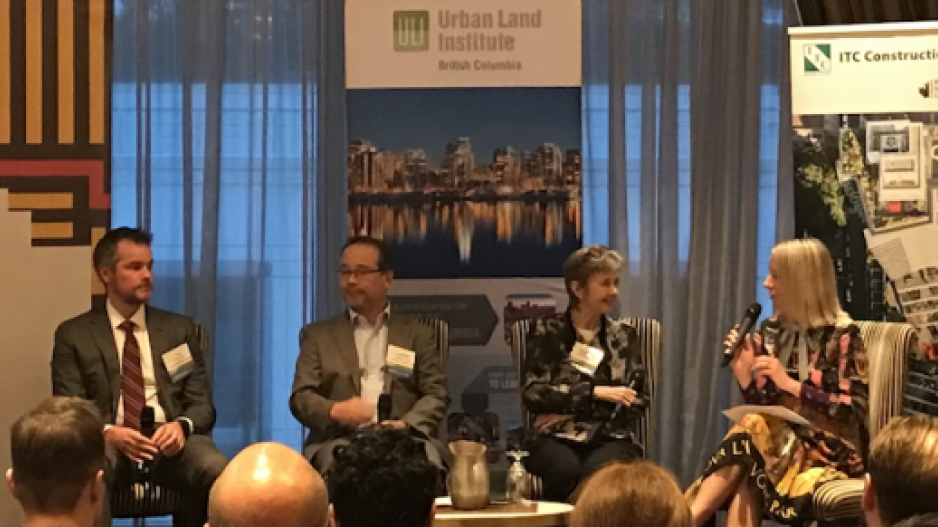Environmental, social and governance (ESG) investments, prioritizing affordable housing and workforces returning to the office are three emerging trends that are top of mind for leaders in B.C.’s real estate industry.
Tim Grant, president of PCI developments, told Glacier Media that a common thread across these trends is the shift toward transit-oriented development. Not only do such initiatives tie into ESG efforts, but they can support the transportation needs of residents in affordable housing, and help office spaces bring employees back to in-person work.
“Most recently, with the City of Vancouver's adoption of the Broadway plan, [transit] has been accepted as a real priority. It's something that's going to help achieve a number of the climate goals that we have laid out,” Grant said.
As many urban hubs in B.C. look to densify, supply more rental stock and build below-market housing, transit will play a critical role in ensuring that those developments are accessible, said Grant.
Translink announced in June of last year that it was launching a real estate development program that would see the program build both commercial and residential projects near transit sites.
Transit is not only crucial for environmental targets, but also contributes towards meeting goals related to the social category of ESG through promoting accessibility, said Grant.
An emerging trend in 2023 is putting the ‘S’ back into ESG, said Andrew Tong, chief investment officer at Concert Properties Ltd.
“The ‘S’ gets a bad rap, it doesn’t get enough focus,” Tong said.
Many companies tend to pursue social programs for “ESG points,” he said, and highlighted that ESG behaviours with the goal of social impact should be something that is woven into the fabric of a company, that reflects employee values and that works to achieve visible social change.
Housing costs and availability ranked as the top social and political issue for 2023 in a survey conducted by the Urban Land Institute British Columbia (ULI BC). In a panel discussion Feb. 7 hosted by ULI BC, leaders in the real estate industry noted this as a force that continues to influence development throughout the metro regions.
“[Housing affordability] is something that has been increasingly loud in the Vancouver context, and I think one that many in our industry are trying to meaningfully participate in addressing,” Grant told Glacer Media.
“There's a really important relationship between density and the ability to offer that. So we've been really pleased with the City of Vancouver recently. I think that relationship has been understood and some of the additional height and density they've approved has enabled us to have a more meaningful participation in that.”
When it comes to the office market, there has been a shift in paradigm between the urban and suburban market, according to Grant.
According to CBRE’s Q4 2022 Office Figures report released earlier this week, Metro Vancouver’s office vacancy rate rose to 7.8 per cent in the final three months of 2022, driven primarily by increases in direct space and sublease availability in downtown Vancouver.
At the same time, office space availability in the region's suburbs decreased to 5.8 per cent.
“Everybody's been in a pause, or a ‘waiting to see what the world looks like coming out of the pandemic’ mindset. And over the next year or so, we're going to have more clarity as to what the needs are in office, and some of the different requirements for people going forward,” said Grant. “In the context of Vancouver, having one of the lowest, if not the lowest vacancy, in North America, it's very well positioned to continue to evolve.”
The value of time and the costs of commuting are topics that have surfaced in industry discussions in recent months, and will shape the future of office development, said Rosemary Feenan, executive vice-president of research at Quadreal.
Accessibility to transit will be of paramount importance when thinking of getting employees back into the office, David Neale, partner at PWC, told Glacier Media.
“Over the last couple of years, employees have gotten used to saving an hour to two hours a day commuting from where they've found an affordable home or the community they want to be in. And they're not willing to give that up, that's the number one barrier that I see from people coming back to the office,” he said.




